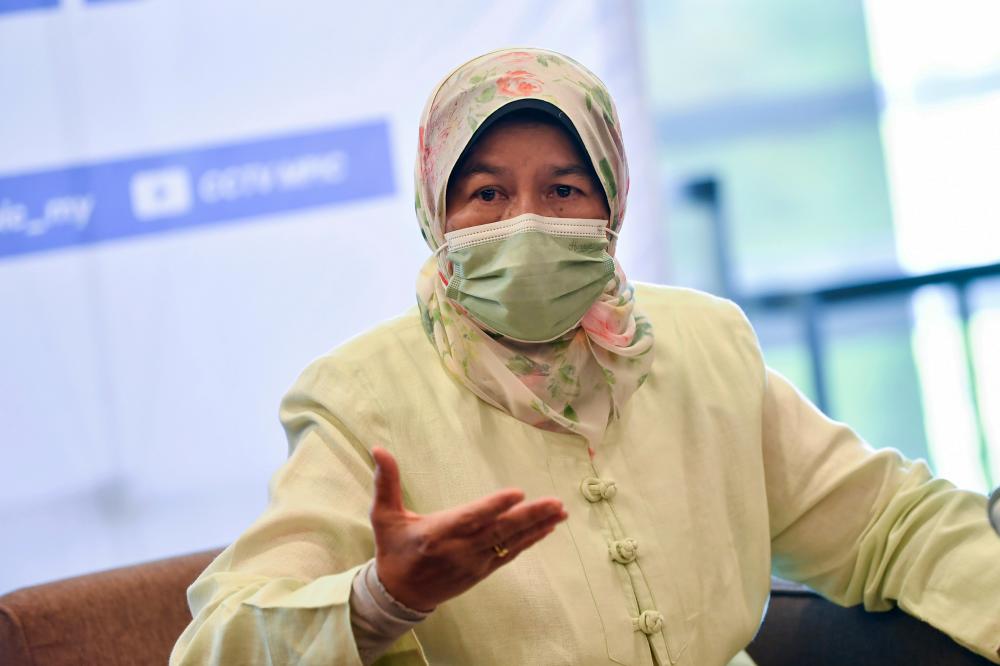KUALA LUMPUR: The Malaysia Co-operative Societies Commission (SKM) and the Malaysian Rubber Board (MRB) have inked a memorandum of understanding (MoU) on a strategic collaboration for the development of rubber-based industries via the cooperative movement.
Plantation Industries and Commodities Minister Datuk Zuraida Kamaruddin(pix) said the MoU will help the ministry in revitalising 50 per cent of rubber plantations that have been left untapped or idle.
“We hope this can be implemented as soon as possible because we want to benefit from the plantations and avoid losses in terms of rubber yield.
“I also hope the Ministry of Entrepreneur Development and Cooperatives (MEDAC) will help us in the management of oil palm, cocoa and kenaf growers because the MPIC does not have a unit that manages the grants that we give to smallholders,“ she said.
Zuraida said this during a press conference on the signing of the MoU here, today.
She said last year, Malaysia’s rubber export revenue stood at RM48.5 billion, and as of July 2021, the rubber export revenue has reached RM54 billion.
“The MPIC expects the rubber export revenue to reach RM80 billion this year, and given the high price of rubber amidst the Covid-19 pandemic, the ministry needs to take steps to ensure that the price remains at the current high level.
“To this end, we need to streamline the management of smallholders; managing them more effectively and efficiently so that they will remain in the industry, while the MPIC will improve on the technology and quality of work,” she said.
Zuraida said that many technologies have been developed via research and development (R&D) efforts, which are currently in the testing phase.
“In shaa Allah (God willing), the MPIC will introduce these technologies to smallholders, including the Mortex liquid which can be applied to the tapping grooves of the rubber trees, after which the rubber tappers would not need to tap the trees on a daily basis, they only need to tap once every six days,” she said.
She noted that this will help to reduce labour costs and time consumption for smallholders, while maintaining a high productivity rate.
Meanwhile, MEDAC Minister Tan Sri Noh Omar noted that both MEDAC and MPIC will benefit from the MoU, as the MPIC will be able to help the rubber smallholders, while MEDAC will be able to achieve the goals outlined under the Malaysian Cooperative Transformation Plan.
He said that to date, there are 63 cooperatives involving 201,000 rubber smallholders.
“Hopefully, the cooperative members can be trained in order to increase the income of rubber tappers and improve their plantation management,“ he said.
The development of the rubber industry through the cooperative movement is expected to able to encourage and expand the involvement of rubber smallholders in the value chain and value-added activities that provide good returns and guide smallholders to become successful entrepreneurs.
The MRB will assist the cooperative movement involved in the strategic collaboration programme through advisory services, training and technology transfers from MRB's R&D endeavours.
Meanwhile, the SKM will assist in identifying potential cooperatives and monitoring as well as supervising the governance of the cooperatives involved, in addition to providing assistance, especially from the aspect of business development.-Bernama










